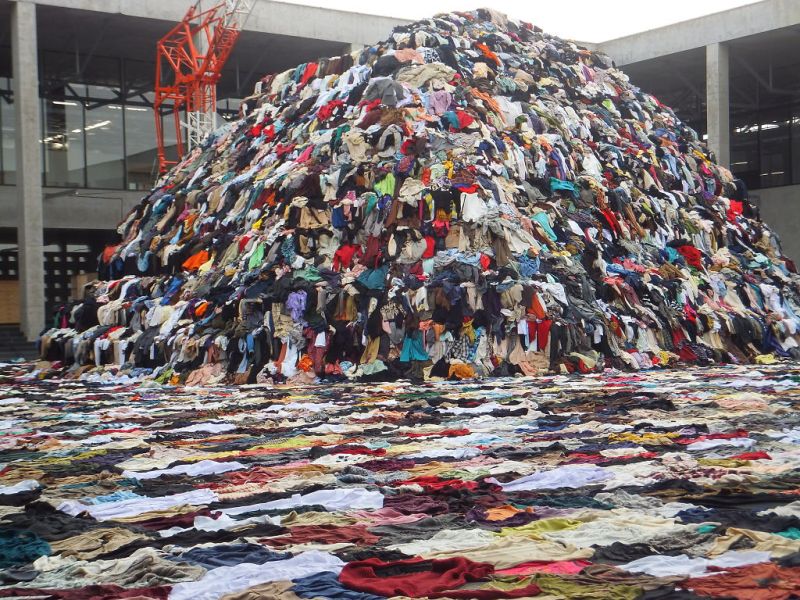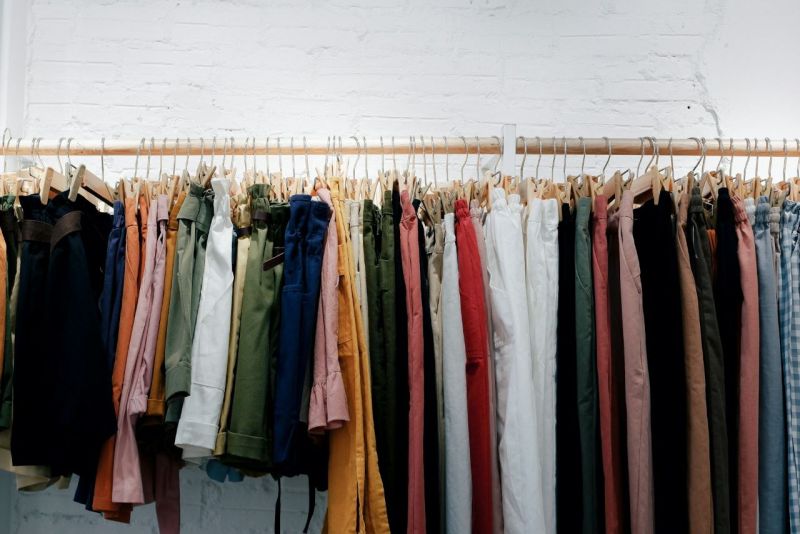As you possibly know already, the jacket you just acquired cost significantly far more than what is composed on the rate tag.
You have not paid out for the trillions of liters of water and the carbon emissions by the business that produced it, for example.
Continue to, you are reassured when the retailer states its brand is strongly fully commited to ‘green values,’ or ‘sustainability,’ it’s possible even ‘circularity.’ Probably the retailer claims it has signed some sort of world-wide pledge of environmental recognition and concern.
But do individuals pledges really indicate nearly anything? Unlikely, states Greenpeace, which warns in a modern report that we should all be extremely skeptical about most of these claims from large fashion manufacturers.
And regulators, which include individuals in the E.U. and the U.S., are ever more scrutinizing these green statements and contacting out offenders, who are even going through lawsuits in some instances.
They say it’s hard for people to know if they can have faith in retailers’ promises that their goods are ‘eco-welcoming,’ ‘carbon-neutral’ or element of solution ‘circularity,’ which suggests that outdated textiles are recycled into something new.
“Sustainability sells,” Greenpeace states of the USD 2.4 trillion-greenback worldwide style marketplace as it warns that the industry’s statements never normally necessarily mean a lot. Frequently, it argues, they’re absolutely nothing a lot more than ‘greenwashing.’ That’s when businesses try to seem eco-friendly but go on environmentally dangerous procedures guiding the scenes.
“Marketing by vogue brand names can make it seem to be as if their actions are generating a variation – but what’s at the rear of the statements produced to individuals of fashion on the labels utilized to market the ‘sustainability’ of the garments?” the Greenpeace report asks.
The apparel sector has a significant environmental footprint, contributing an approximated 2 to 8 % of global greenhouse gas emissions. At least component of that can be blamed on coal-powered factories and petroleum-based mostly fabrics this sort of as polyester, nylon, Lycra and Spandex.
To make issues even worse, minimal-selling price clothes are commonly made of synthetics and polyesters, which are derived from oil and petroleum manufacturing. People synthetics really don’t biodegrade: instead, synthetic fibers from inexpensive clothes can pollute drinking water sources after they are thrown out.
Microplastic fibers utilised in polyester fabrics can also be introduced both equally through producing and when the garments are washed. These fibers then close up in rivers and, ultimately, the ocean.
“Textiles have, on regular, the fourth-largest impression on the atmosphere and local climate modify from a consumption viewpoint,” claimed Lars Fogh Mortensen, circular overall economy and textiles expert at the European Surroundings Agency (EEA), in a latest article in Elle journal.
.redcircle-website link:connection {
coloration: #ea404d
text-decoration: none
}
.redcircle-hyperlink:hover {
shade: #ea404d
}
.redcircle-backlink:lively {
colour: #ea404d
}
.redcircle-website link:visited {
colour: #ea404d
}
Run by RedCircle
According to Greenpeace, manner manufacturers generally try to confuse consumers with fake ‘ecolabels’ that are only named just after their personal sustainability courses, relatively than confirmed by third events.
They also not often disclose details about their source chain and supplies to back again up their claims, in its place claiming ‘circularity’ by recycling materials from other industries, even as employed textiles are dumped in Global South international locations in its place.
To underline the scale of the issue, a 2020 European Commission analyze located that 53 per cent of examined environmental claims in the E.U. ended up both obscure, misleading or unfounded, and 40 per cent ended up unsubstantiated.
In response, the E.U. has developed 16 parts of legislation intended to crack down on vogue waste and greenwashing and, Greenpeace claims, “help make sustainable solutions the new norm.”
One particular vital proposal, the Directive on Environmentally friendly Promises, aims to deal with greenwashing by setting prerequisites on how to substantiate environmental statements and by introducing regulations on environmental labeling.
Meanwhile, yet another proposed directive on corporate due diligence aims to maintain businesses accountable for labor and environmental abuses as a result of their overall benefit chains.

In the U.S., at least two states – New York and Washington – have proposed style sustainability functions that demand organizations to report on their impacts and, in New York, report on carbon emissions. The New York act has been endorsed by many general public figures, like actors Jane Fonda and Leonardo DiCaprio.
Meanwhile, in the U.K., vogue vendors Asos, Boohoo and George at Asda have pledged to “use only accurate and obvious inexperienced claims” subsequent a probe by the Competitors and Markets Authority (CMA), which is also investigating greenwashing in family goods.
Fashion giant H&M – one particular of quite a few named by Greenpeace, together with Shein, Decathlon and Zara – states it is fully commited to transparency and supports initiatives by regulators.
“Transparent sustainability details is critical for the reason that it empowers consumers and puts strain on firms, as a result contributing to favourable alter,” H&M’s media business office told ThinkLandscape in an electronic mail.
“Although this is a sophisticated location, we are confident that a meticulously crafted regulatory framework can lead to a beneficial growth for our market.”
Though regulators are producing a commence, they need to do a lot more to desire accountability from a fashion sector “designed to improve profit at any cost,” claims Dilys Williams, director of the Centre for Sustainable Vogue at the London College or university of Fashion.
“Radical action have to be taken to rebuild it to include things like fairness, racial and climate justice,” Williams wrote in an essay revealed in The Guardian.
“Fashion is a thing that we all take component in. It is a social, imaginative, economic and cultural established of things to do that can lead to the environment, not just get from it.”
The put up What is the real charge of quickly vogue? appeared very first on #ThinkLandscape.




